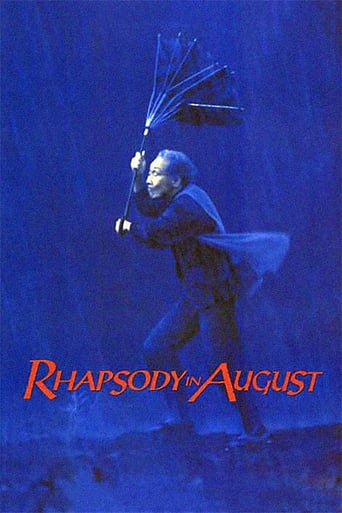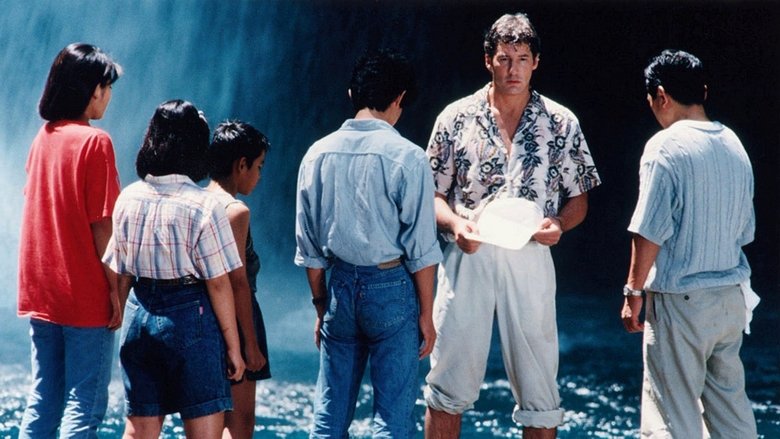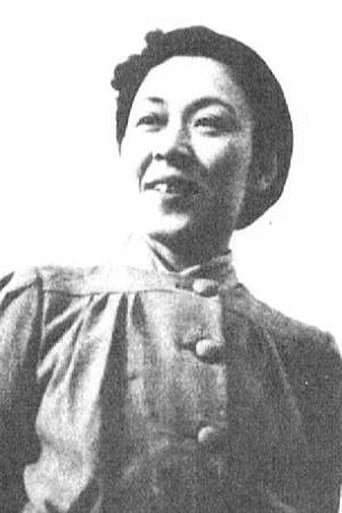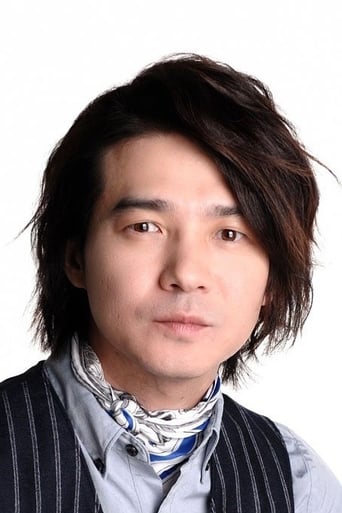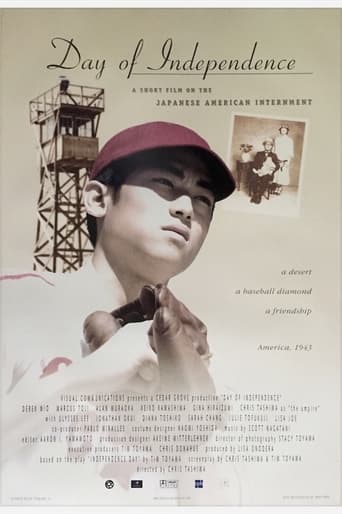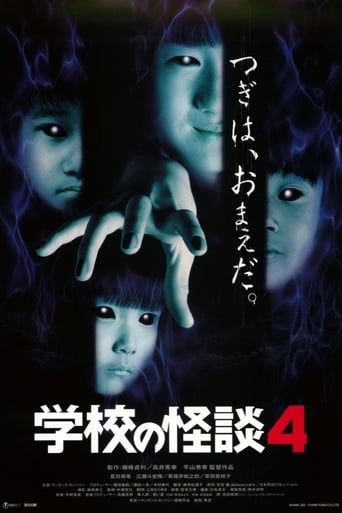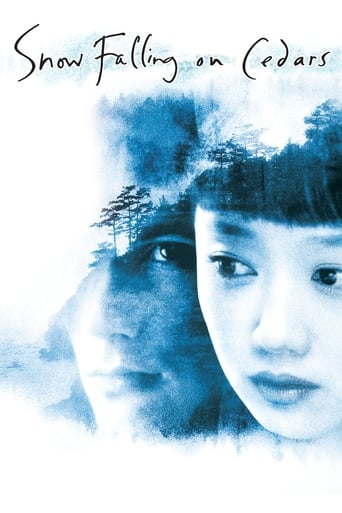Rhapsody in August (1991)
The story centers on an elderly hibakusha, whose husband was one of 80,000 human beings killed in the 1945 atomic bombing of Nagasaki, caring for her four grandchildren over the summer. She learns of a long-lost brother, Suzujiro, living in Hawaii who wants her to visit him before he dies.
Watch Trailer
Free Trial Channels
Cast


Similar titles
Reviews
Let's be realistic.
A lot of perfectly good film show their cards early, establish a unique premise and let the audience explore a topic at a leisurely pace, without much in terms of surprise. this film is not one of those films.
This is one of the few movies I've ever seen where the whole audience broke into spontaneous, loud applause a third of the way in.
Excellent characters with emotional depth. My wife, daughter and granddaughter all enjoyed it...and me, too! Very good movie! You won't be disappointed.
This movie is not about whether the bomb should have been dropped. It is about war and the spoils of war. The grandma tells the children about death and destruction that happen when two forces attack one another. The problem in 1945 was that nuclear weapons were unleashed. However, going back in time, as soon as primitive man had sticks, they used them to bash each other over the head and the belongings went to the winner. This is a quiet tale of four Japanese teens who are being looked after by their grandma. She listens to them complain (even though their experiences are non-existent) and sends them off to investigate the city of Nagasaki. They are touched by the stories of the people who survived. They await a trip to Hawaii to see the brother of their grandmother, who is ill. Things get complicated due to the return of the parents and some miscommunication. The family is visited by a relative played by a very young Richard Gere. He is soft spoken and respectful. But the biggest scene stealer is the the grandma. She is so complex and believable. The final scene is striking cinematography. We learn the resiliency of the people and their efforts to hang on to the memories of those they lost and the evils of war in general. Quite a different tack for Kurosawa.
On August 9, 1945, six years into the bloodiest war concocted by governments of major powers, the humble Japanese people -that had nothing to do with the decisions of their barbarous rulers- he got up after another night marked by anxiety and terror. For the past six months, dozens of cities were being bombed by allied forces prepared to uproot every trace of fascism. And just three days before the most terrible bomb that has come to know humanity, had been released by the U.S. against the people of Hiroshima, killing 180,000 people with it, most of them, innocent civilians. Around noon, a beautiful and loving lady, look forward to her husband who, at that time, was in the city of Nagasaki. When the clock struck at the stroke of 11:00 am, she was out of the house looking at the mountains that separated the place where he was the father of her children. Two seconds later, heard, this time very close, another terrifying explosion as three days before, he did believe that had opened wide the gates of hell. A huge mushroom of fire and smoke curled over the mountains in the center of Nagasaki and an satanic eye kept on your retina the image of all those around him. About 80 thousand civilians, without any role in the conflict, were killed instantly and in the course of the year. It was Harry S. Truman' gift, to account for the "power" of the American nation. 46 years after of this insucess, the director Akira Kurosawa tried to do an act of reflection, forgiveness and reconciliation, hatred against any lag still persists in the minds of people. And a grandmother, the woman who was waiting for the husband who never returned and never was able to identify among charred corpses, feels that he has erased any resentment in his heart, but still thinks with pain in man she loved. Four grandchildren accompany now and the memories will come to your mind as a choice between a trip to Hawaii is put on the table.For unlucky, this is a timid film of little relevance and visual plot, and that does not achieve sufficient strength and sensitivity that we had used the master Kurosawa. The presence of Richard Gere gives very little, and the film dissolves without the emotional impact that we hoped we would.
As an admirer of Kurosawa, I have been warned by many on the political slant of the film. I do not blame Kurosawa for having made "The Most Beautiful" (1944) as it was probably a film which he was forced to make, but with "Rhapsody" made 45 years after the war ; his view of things in nothing short of being fascist. Japan was the aggressor. When Italy and Germany fell, they still believed they could win the war on the Asian front. If not for the bombs, how many more non Japanese nationals would have lost their lives or endured torture? They invaded. They caused such atrocities which human history had never before recorded. The Japanese militia was trained to commit suicide rather than surrender. If not for the H-Bombs, Japan will never have surrendered. The H-bombs were a necessity of the time. Why should an American feel embarrassed and apologise to the Japanese for Hiroshima and Nagazaki? It is the Japanese who should say no more to Japanese imperialism and apologises to the entire world for having invaded plundered raped mutilated and caused such suffering to the entire human race living in the east at the time. It is the Japanese who should say they have learned their lesson. After this I doubt if I will be able to see "the humanism" of Kurosawa in "Red Beard" in the same light. For those who think America wrong in 1945, well maybe it is high time they finance a film made by Jews apologising to the Germans for the concentration camps of WWII.
A good movie is interesting and easy to understand. This is an absolute treasure of a film. A love letter to Nagasaki. An opportunity to see how deeply the atom bomb affected Japanese culture. An opportunity to see a number of the landmarks of the attack. And edited so wonderfully. Kurosawa always highly prized being able to tell the the story in images alone and understood how composition of shots increases content, and this movie has some very quiet sober shots that hit really really hard. It shows how we can fail to see things that are right under our noses for years and years. How things can happen that you never get over. I loved this movie!!!

